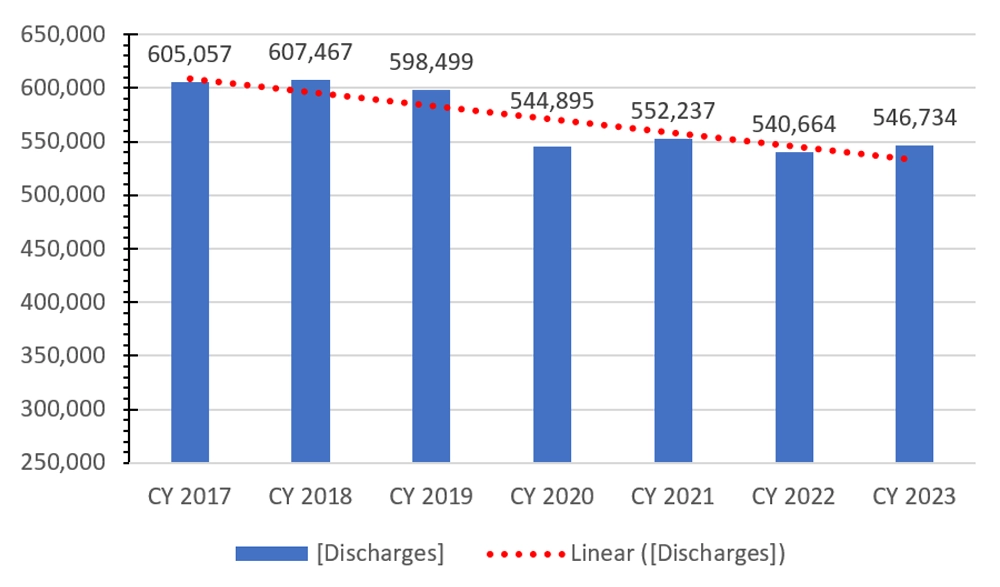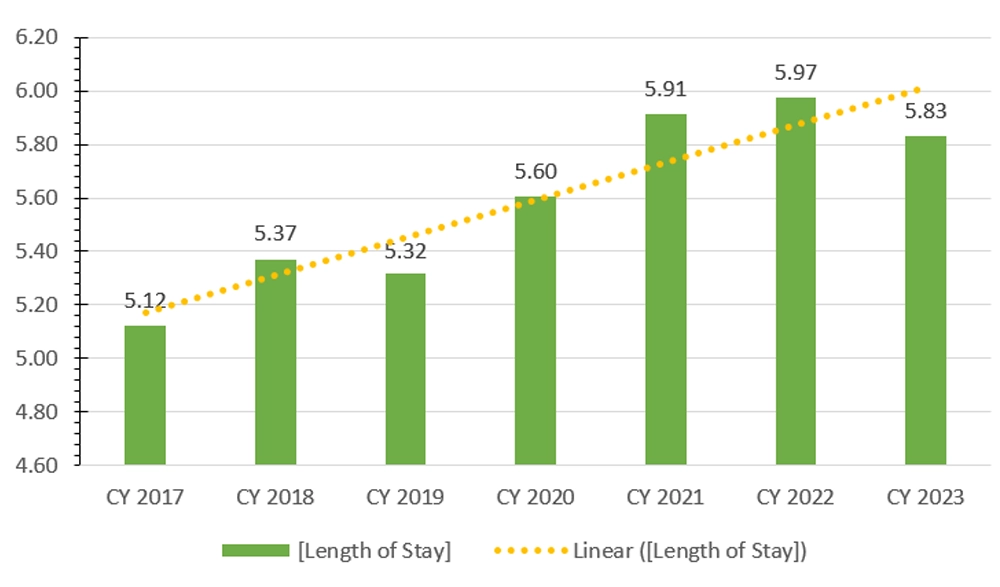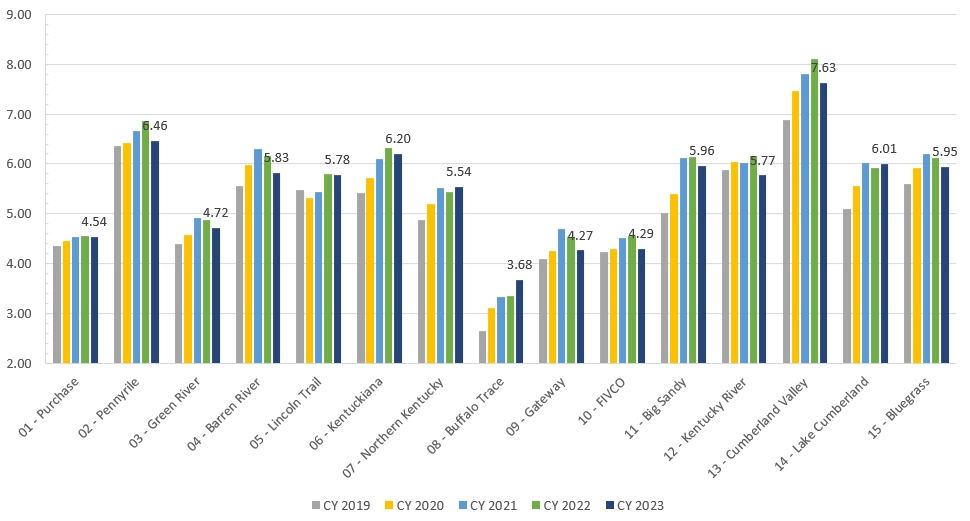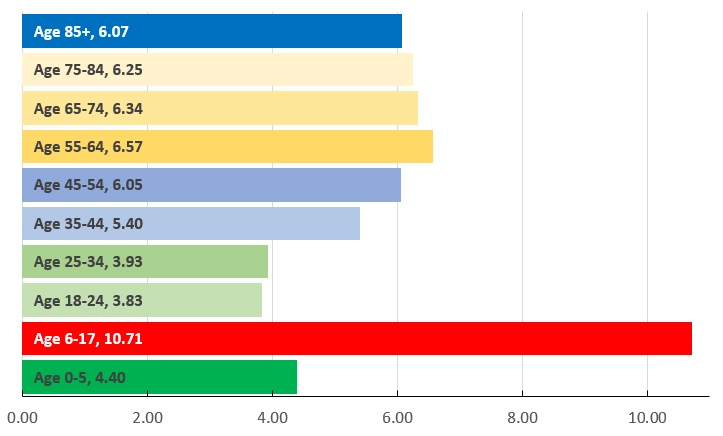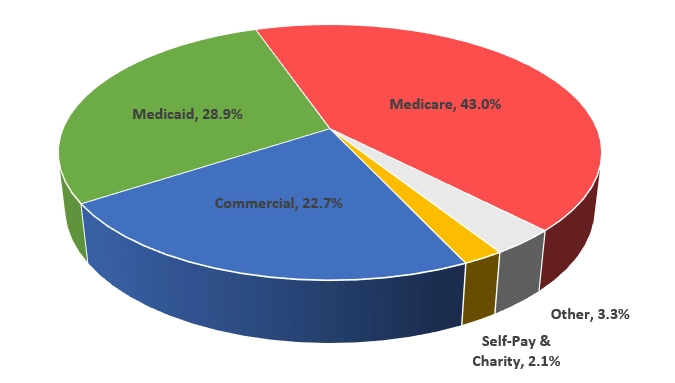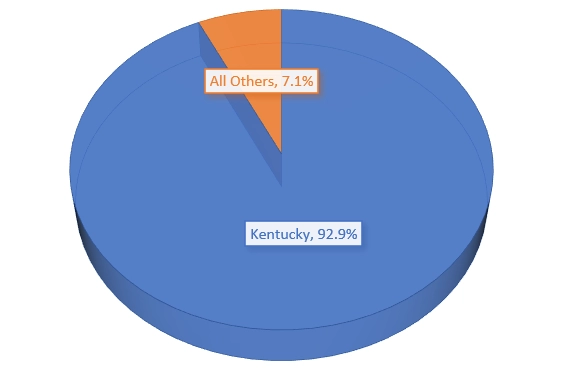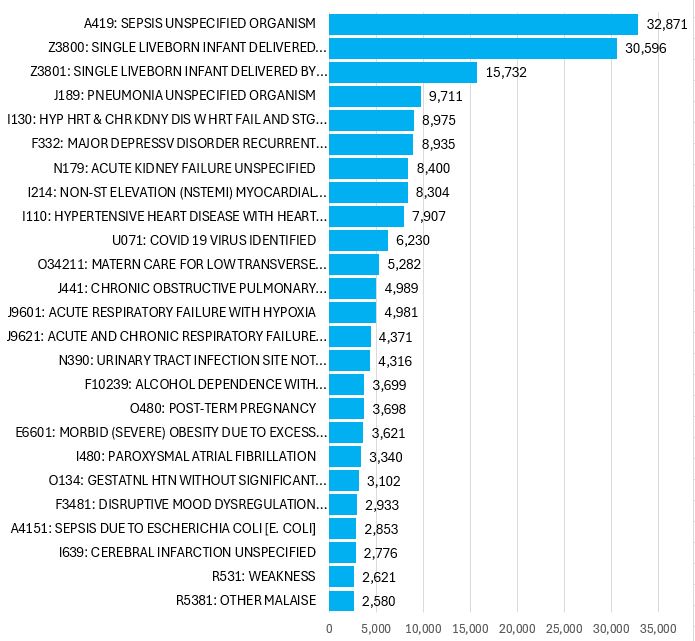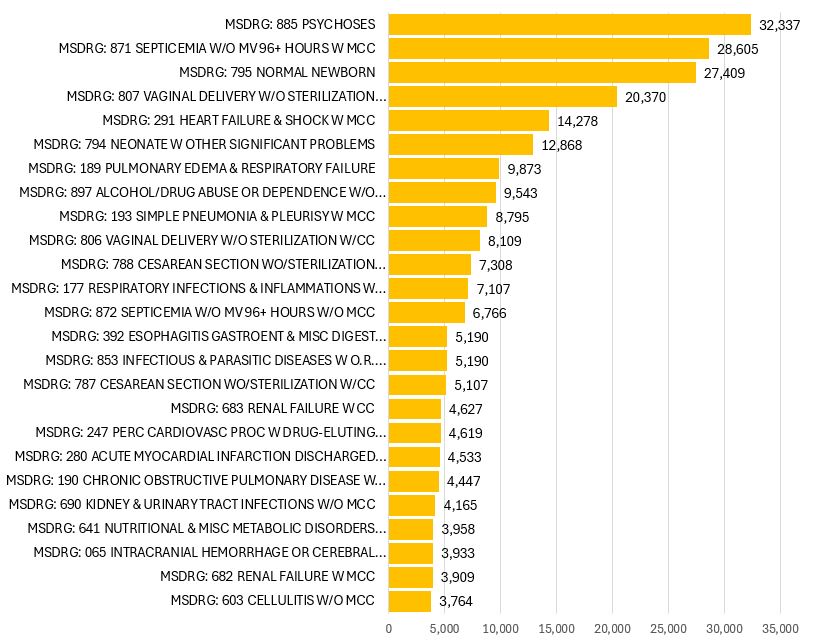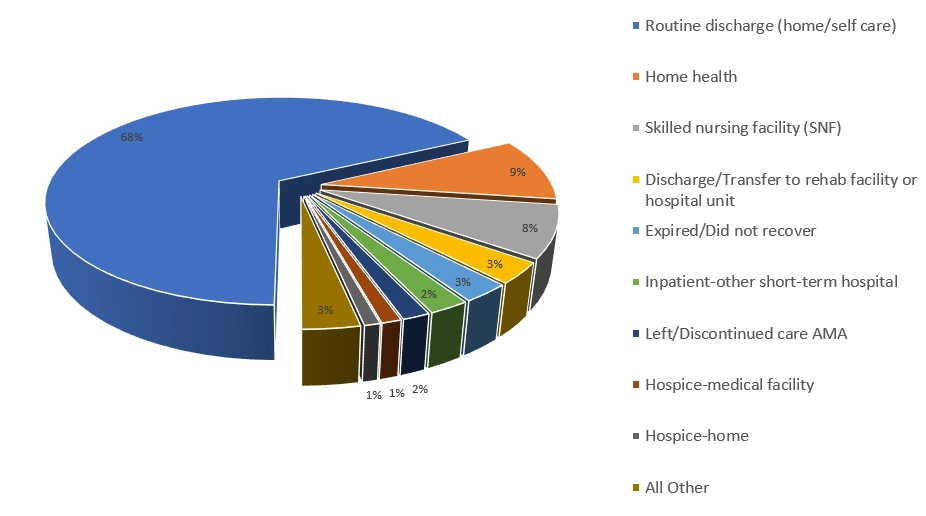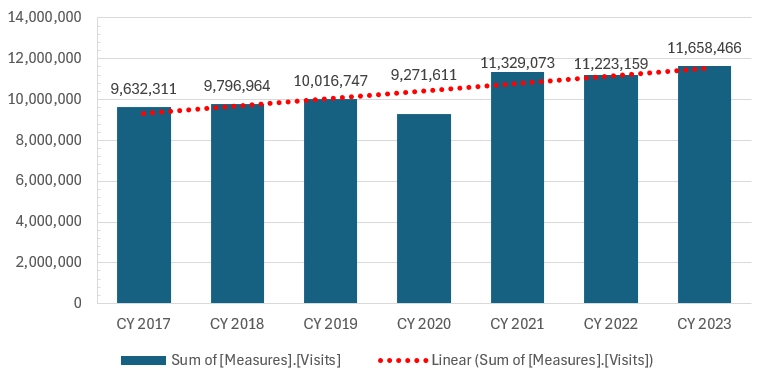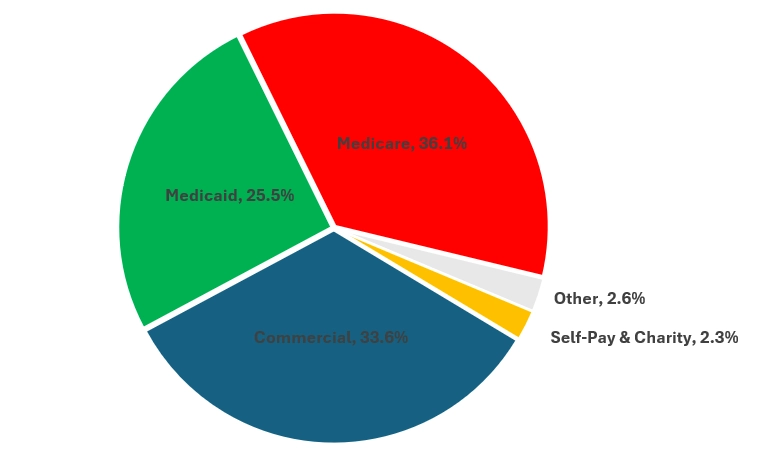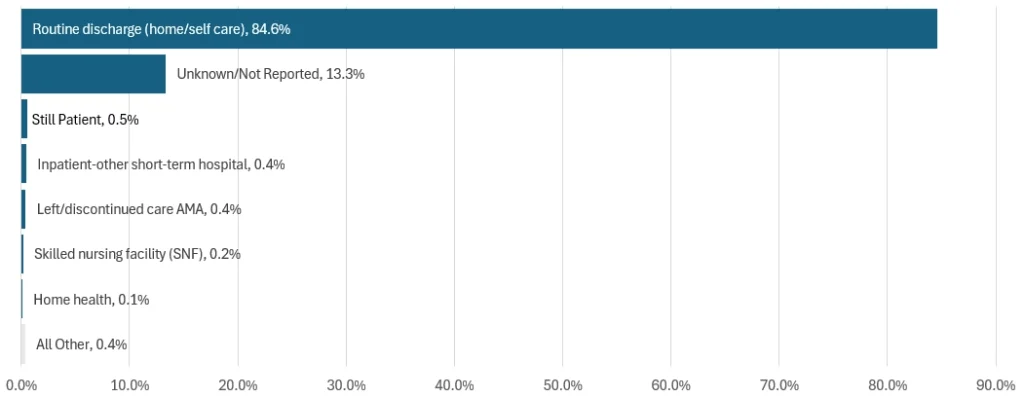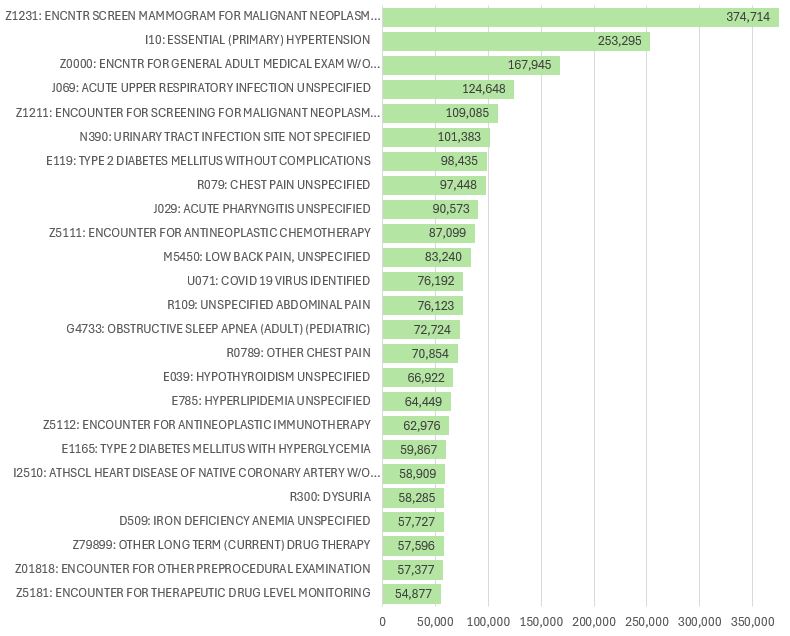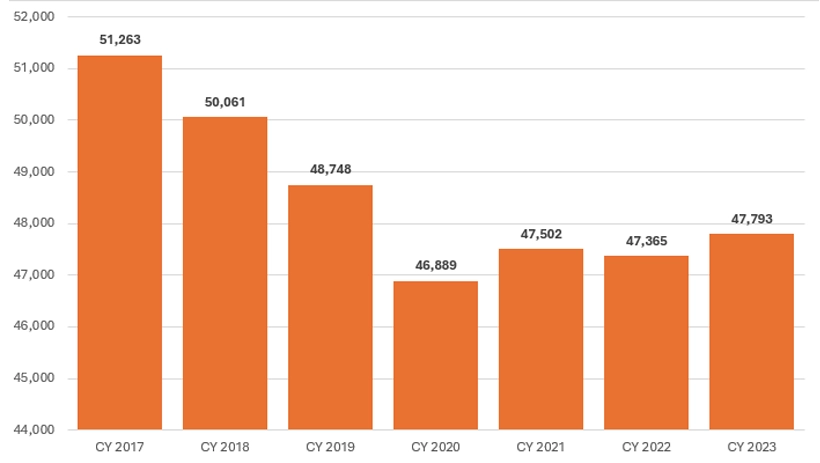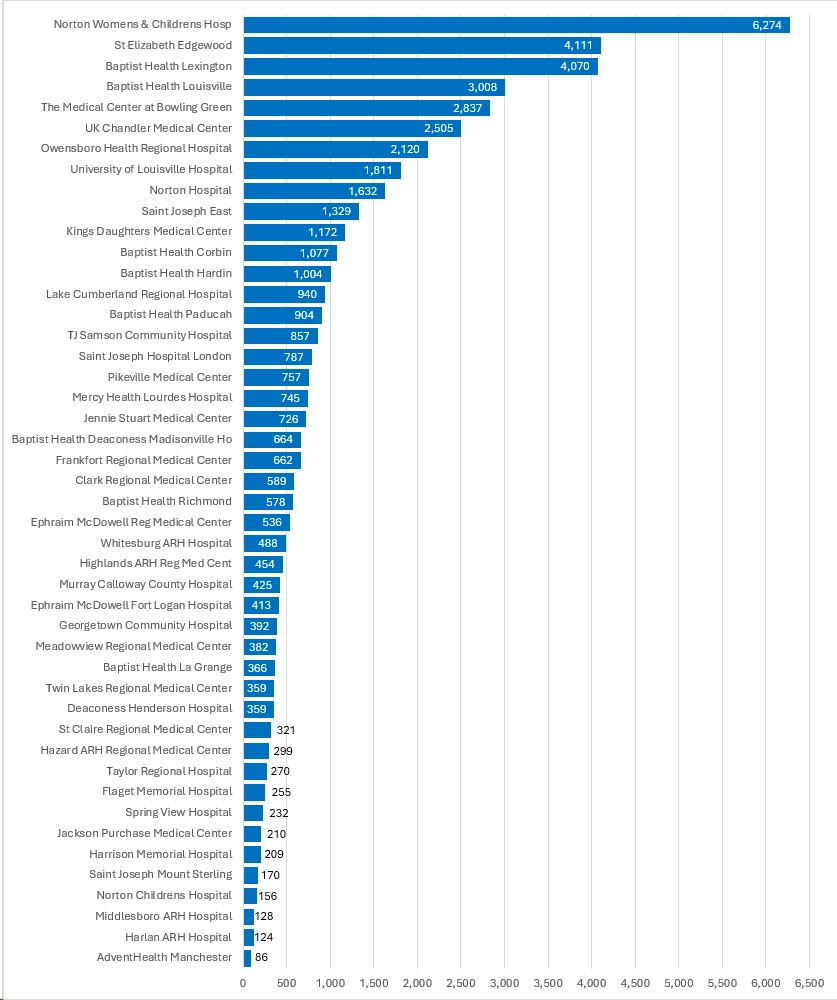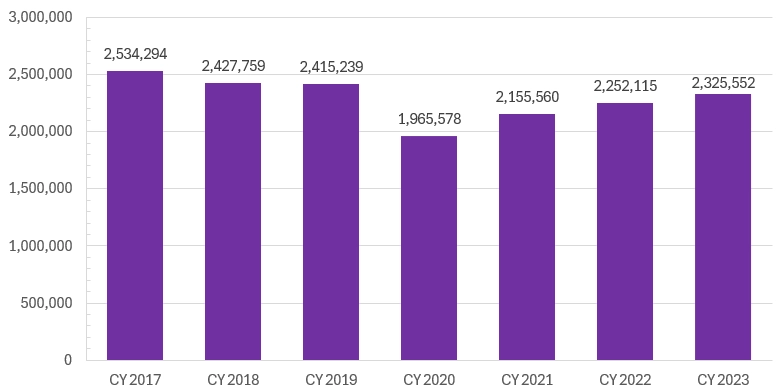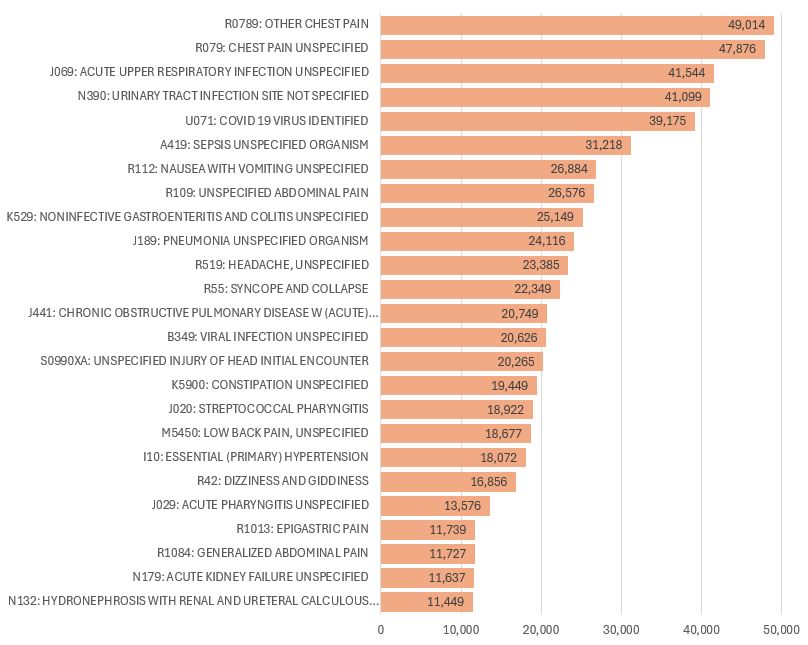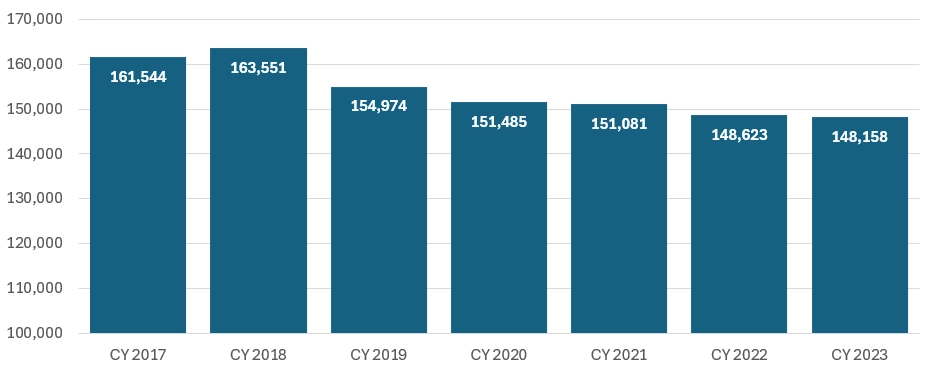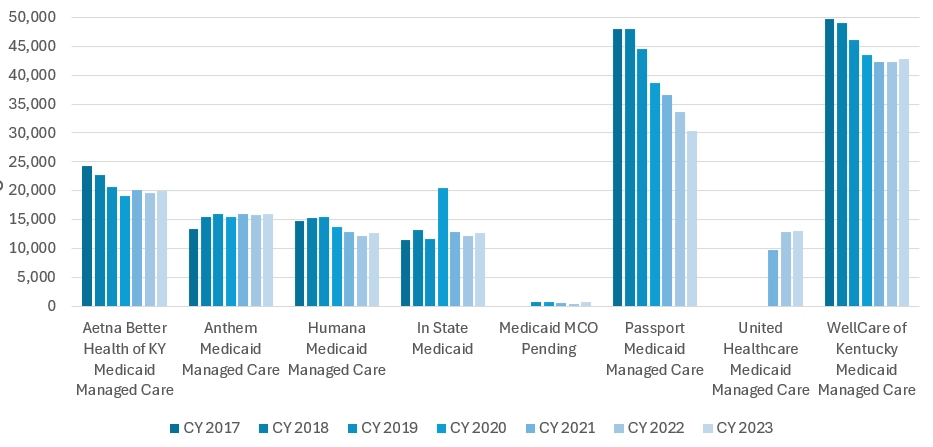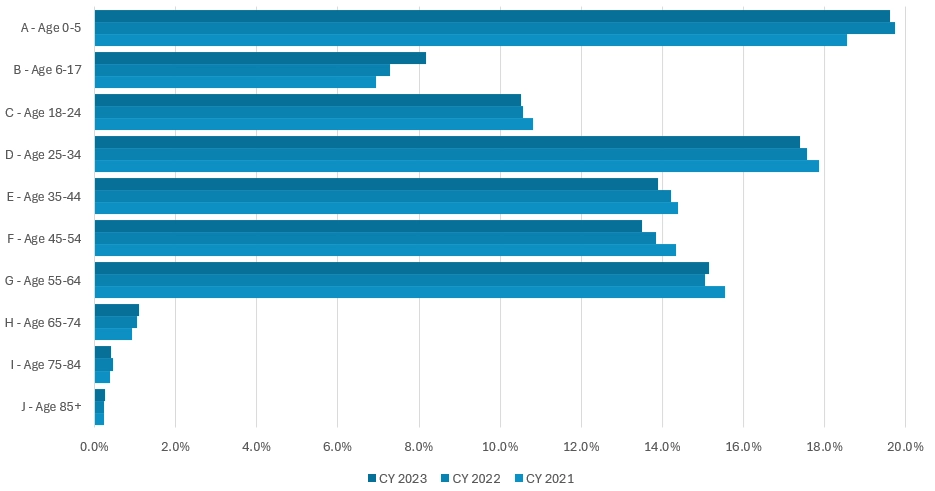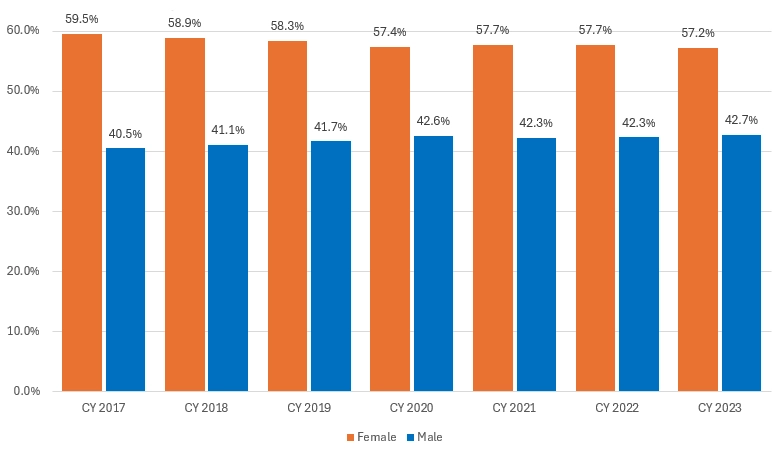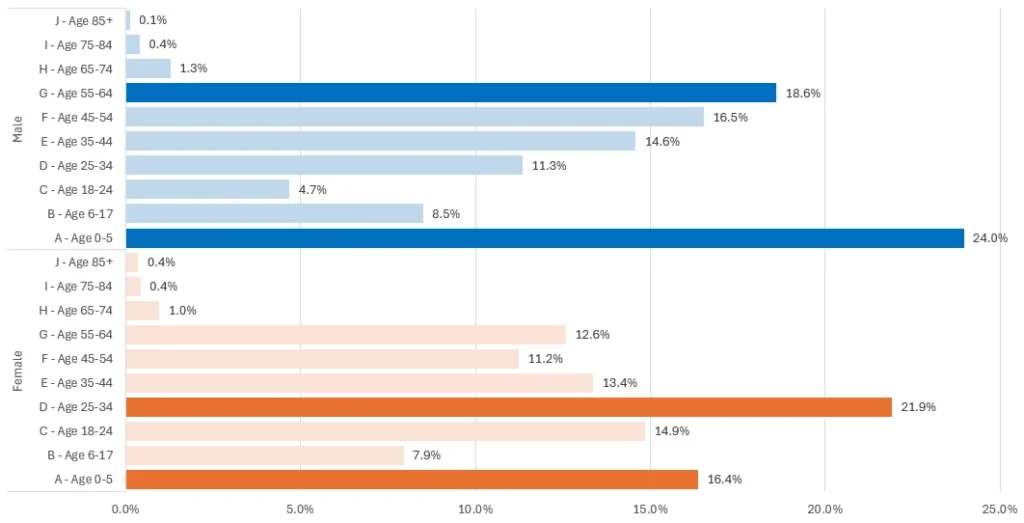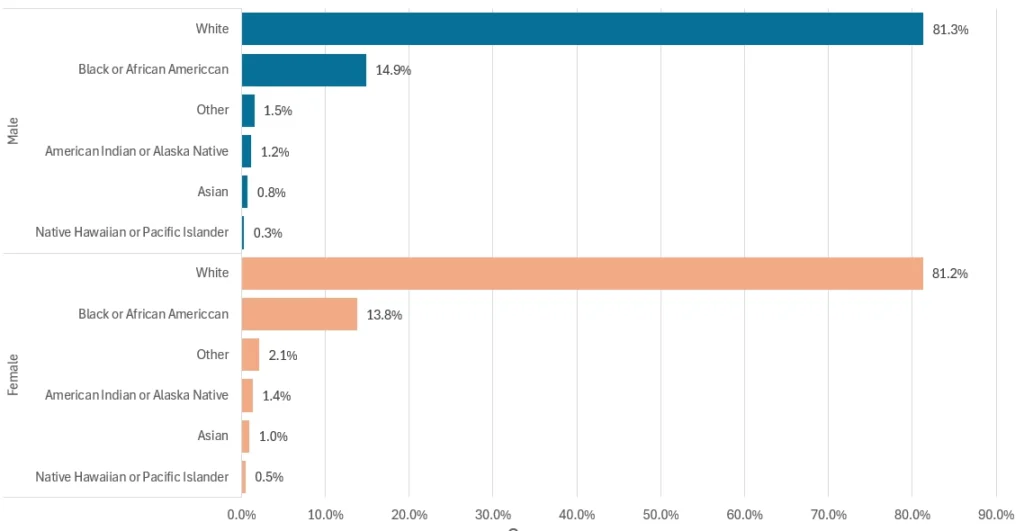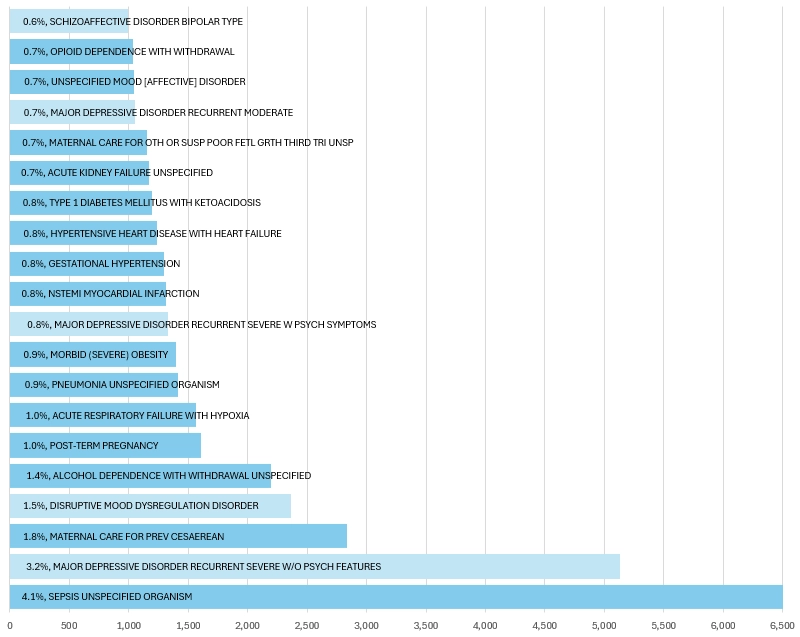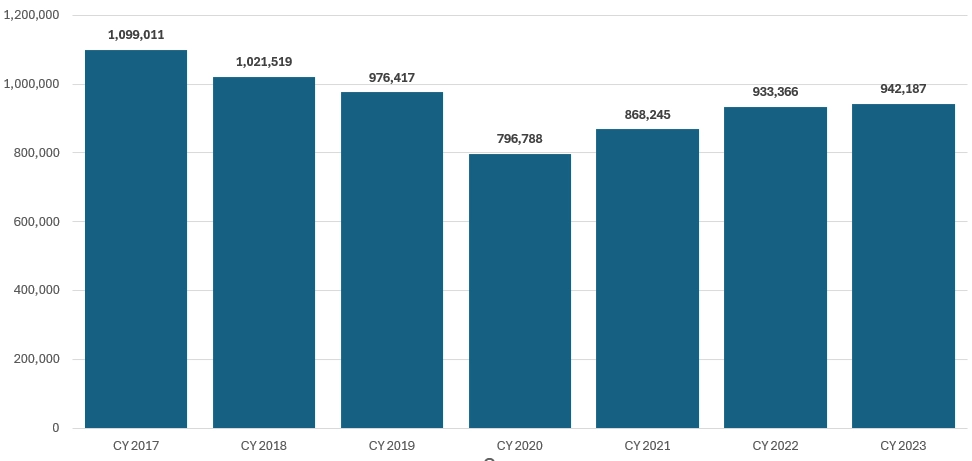Home Data Center Transparency Data
Transparency Data
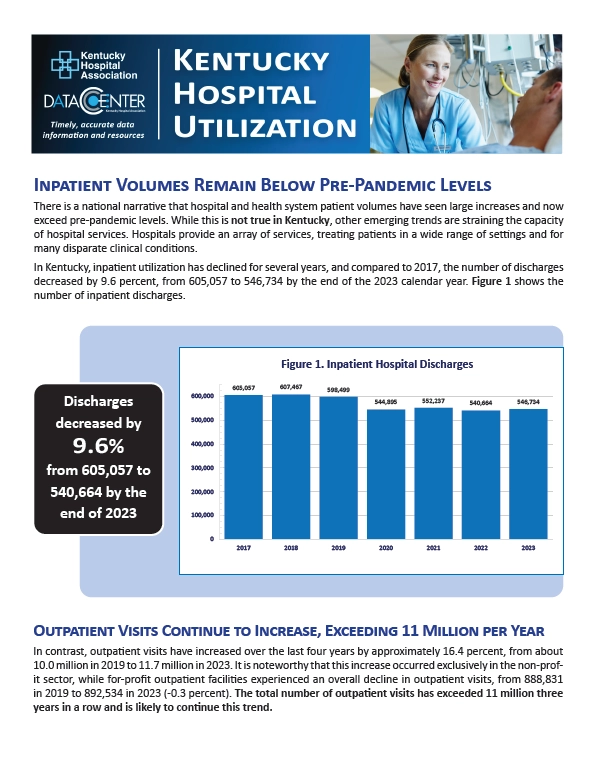
Kentucky Hospital Utilization
An analysis of trends in inpatient visits, outpatient visits, and emergency room utilization at Kentucky hospitals. (2024)
Protect Medicaid
The Coalition to Strengthen America’s Healthcare has launched #FacesofMedicaid, a national ad campaign that will highlight Medicaid’s critical impact on the more than 72 million Americans who rely on the program for access to care. The campaign tells the story of the crucial role Medicaid plays in the health of America’s most vulnerable citizens, including 30 million children, seniors, veterans, and people with disabilities.
- Learn more
- Click here to send a letter to your member of Congress encouraging them to protect Medicaid funding.

See below for a selection of different data visualizations using KHA InfoSuite Hospitalization.
Click on each chart to view the full-size version.
Inpatient Cases
Figures 1 and 2 demonstrate the current trend of a declining number of discharges (hospital stays) but increasing length of stay, which is indicative of an increase in patient acuity and the severity of illness. In addition, as shown in subsequent figures, the length of stay varies by ADD and patient age. The longest average length of stay (ALOS) is observed for adolescents from age 6 – 17 and patients aged 55 and older.
Figures 5 and 6 depict the type of insurance (payer) and the residence. Nearly 72 percent of discharges are beneficiaries of government programs, the state Medicaid program (28.9 percent), and the federal Medicare program (43.0 percent). Less than a quarter of all patients have employer-sponsored (commercial) insurance coverage. The vast majority of patients, more than 9 of 10, are Kentucky residents.
The last three figures show the most frequent medical and surgical services and the patient discharge status. The most common medical services in the calendar year 2023 address respiratory and circulatory conditions and childbirth and newborns. Similarly, the most common surgical services were for childbirth and the circulatory and musculoskeletal systems. The majority of patients, approximately 68 percent, have routine discharge to home and self-care, while another 9 percent are referred to home health services and 8 percent to skilled nursing.
Outpatient Cases
Figure 10, unlike the decline in inpatient discharges, and with the exception of 2020, the first full year of the COVID-19 pandemic, shows an increasing trend in outpatient visits. A larger share of these visits are for patients with employer-sponsored (commercial) health insurance. However, 61.6 percent of patients are beneficiaries of state and federal government programs. Nearly all outpatient visits result in routine discharges to home and self-care.
Kentucky Births

Birthing-Friendly Hospitals and Health Systems
Includes an interactive map showing birthing-friendly hospitals & health systems.
(Centers for Medicare and Medicaid Services)
Emergency Room
Emergency room (ER) visits declined for several years and dropped off during 2020 due to COVID-19 restrictions. They have increased since but remain below pre-COVID levels. In calendar year 2023, there were approximately 90,000 fewer ER visits than in 2019.
Kentucky Medicaid by the Numbers
FIGURE 18: Number of Inpatient Discharges, Kentucky Medicaid, CY 2017 - 2023
Note: Out-of-state Medicaid beneficiaries are excluded and typically represent between 8,000 and 10,000 inpatient discharges per year.
FIGURE 24:Top-20 Principal Diagnoses for Inpatient Discharges. Medicaid, CY 2023
Note: Single live births are the most frequent reasons for an inpatient discharge and typically account for 23,000 - 26,000 inpatient discharges per year.

